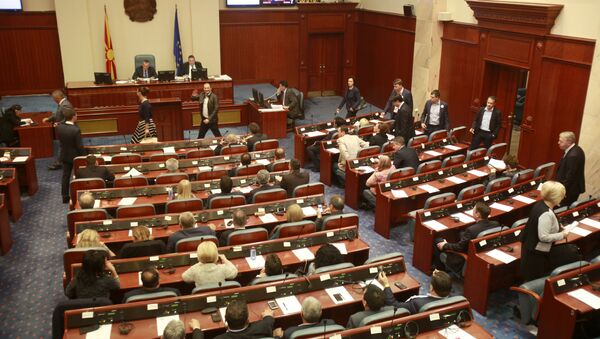The bill was passed in parliament earlier, but Macedonia’s President Gjorge Ivanov refused to sign it into law for deeming the measure unconstitutional and one that endangers the unitary Macedonian state. Ivanov returned the law to parliament for further review.
"The president [Ivanov] pointed out that 19 articles of the legislation are unconstitutional and VMRO-DPMNE submitted amendments with respect to those amendments," Dimovski said on the floor of Parliament on Wednesday, requesting the speaker not to allow a vote on the measure.
Dimovski explained the proposed amendments had been ignored by the ruling majority of the Albanian DUI party and the Socialdemocratic Union of Macedonia (SDSM), and listed numerous legal and procedural violations.
"The EU designation [as priority reform law] was used incorrectly, the government made a violation as did the Parliament by not returning the draft legislation to the government," Dimov said. "We called for public debate on the bill… but there was none."
Solza Grceva, leader of the popular Voice for Macedonia party, lead the criticism of the law and wrote in a statement that the measure had been passed in a criminal manner in violation of parliamentary procedures and democratic principles by a US-installed governing coalition.
"This parliament is not ours, we do not recognize it. Macedonia must not be a hostage to a blackmailed government and politicians." Grceva said.
The vote on the law came after US Assistant Secretary of State Wess Mitchell and Senator Chris Murphy visited Macedonia to discuss Macedonia’s name dispute with Greece in an effort to promote NATO and EU membership.
On Wednesday evening, President Ivanov issued a statement to the nation saying the law was passed in an undemocratic manner, will cause a total blockade of the state institutions, deepen inter-ethnic tensions and subject Macedonia to a redefinition of its constitutional order.
As a consequence, Ivanov informed the public that he will not sign the measure into law.




